Abu Qatada: Home Secretary wins permission for appeal
- Published
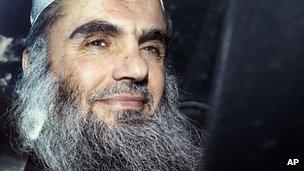
The cleric faces a re-trial in Jordan for allegedly conspiring to cause explosions on Western and Israeli targets
Home Secretary Theresa May has won permission to appeal against a decision last month to block the deportation radical cleric Abu Qatada to Jordan.
Government lawyers will now be able to argue the Special Immigration Appeals Commission (Siac) was wrong to block the preacher's removal.
A senior judge ruled Jordan had not proved Abu Qatada's retrial would be free of evidence obtained by torture.
The preacher is currently living under strict bail conditions in London.
No date has been yet set for the Court of Appeal hearing during which Home Office lawyers are expected to argue Siac wrongly interpreted the law relating to the preacher's right to a fair trial.
A Home Office spokesperson said: "We are pleased that the Court of Appeal has granted us permission to appeal against Siac's decision on the deportation of Abu Qatada.
"As we have said, the government strongly disagrees with Siac's ruling, and we remain committed to deporting this dangerous man."
The Court of Appeal case will be on the narrow issue of whether the Siac judgement was wrong because of a misinterpretation of the law, rather than the question of whether the underlying facts were incorrect.
The radical cleric faces a re-trial in Jordan for allegedly conspiring to cause explosions targeting Western and Israeli targets before the year 2000.
He was found guilty of terrorism offences in his absence. Security chiefs believe he played a key ideological role in spreading support for suicide bombings in Europe as one of the most prominent theologians advocating violent jihad.
Last month the Special Immigration Appeals Commission ruled it was not satisfied the preacher would be tried fairly in Jordan because the case could include evidence obtained by torturing his former co-defendants. The use of such evidence is banned under British and European law.
In January, the European Court of Human Rights ruled the preacher could not be deported until Jordan gave an assurance that torture tainted evidence would not feature at his trial.
Ministers lobbied Jordan for more assurances, leading the home secretary to tell MPs she believed she had struck a deal that would satisfy judges. But the failure to convince Siac meant the preacher could not be held in prison any longer and had to be released on bail.
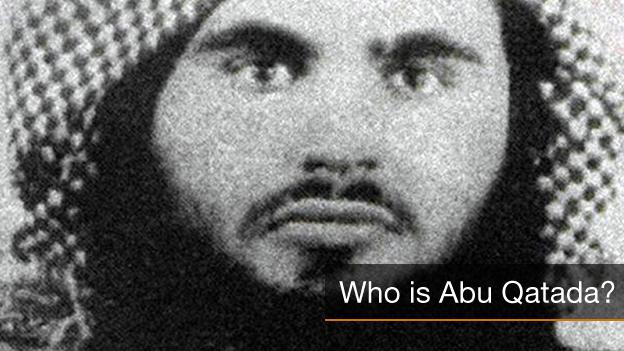
Abu Qatada was born in Bethlehem in 1960 and spent his early life in Jordan. He fled to Pakistan in 1989 claiming political persecution and eventually arrived in the UK in 1993. Abu Qatada was part of a wave of Islamists who sought refuge in the UK during the 1980s and 90s, often exiled from the Arab regimes they were trying to overthrow.
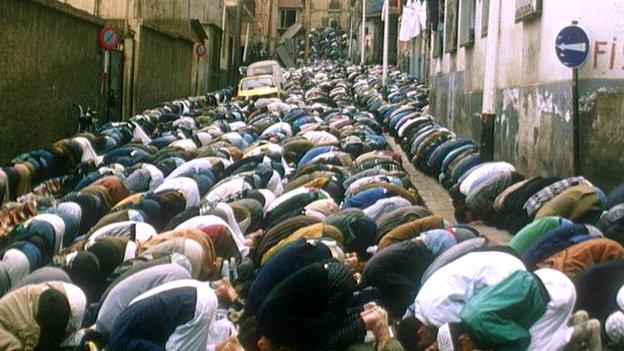
Abu Qatada emerged as a key voice in the Islamist movement in London, which advocated strict Islamic government in Muslim countries and armed struggle against despots and foreign invaders. His preachings and ideas won him influence among Islamist groups in Algeria and Egypt during the 1990s. He was tried and found guilty in his absence of terrorism offences in Jordan in 1999.

By 2001 fears were growing about Abu Qatada's hard-line views. He endorsed suicide attacks in a BBC interview and was questioned in connection with a German terror cell. Copies of his sermons were found in the Hamburg flat used by some of the 9/11 attackers and Spanish judge Balthazar Garzon described him as the "spiritual head of the mujahideen in Britain". In December 2001, Abu Qatada disappeared and became one of the UK's most wanted men.
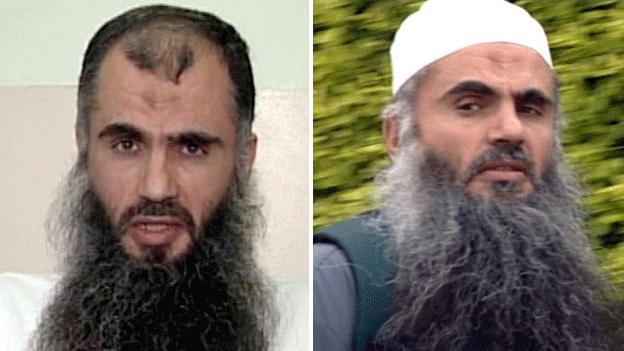
In October 2002 Abu Qatada was arrested and detained without charge. He was released in 2005 and put under strict house arrest, but months later was arrested under immigration rules and moves began to deport him to Jordan to face retrial on the charges he had been convicted of six years earlier. In 2007 he lost his immigration case, but the Court of Appeal later ruled that deportation to a regime which uses torture - ie Jordan - would breach his human rights.

The Court of Appeal ruling was overturned by the Law Lords in early 2009, and the then Home Secretary, Jacqui Smith (L), signed a deportation order. Abu Qatada then appealed to the European Court, which eventually ruled that he could not be deported while the risk of torture remained. In 2012 Home Secretary Theresa May (R) pressed ahead with deportation, but this was blocked amid a row over the appeal deadline.
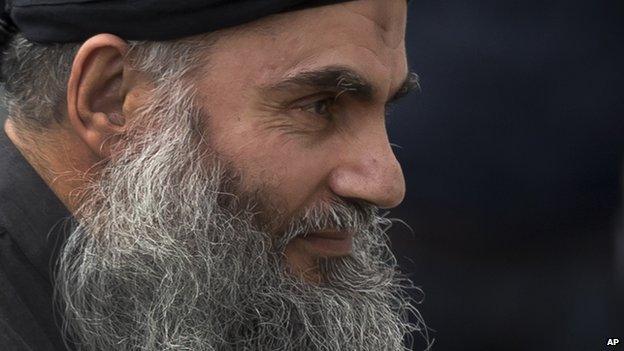
In November 2012 Abu Qatada was released from prison once more after a UK court backed his appeal on the grounds that witness evidence obtained by torture could be used against him at trial in Jordan. That was a disastrous blow to the Home Office because it meant the only way the deportation could happen would be if Jordan changed its system to ensure torture-tainted evidence could not be used.
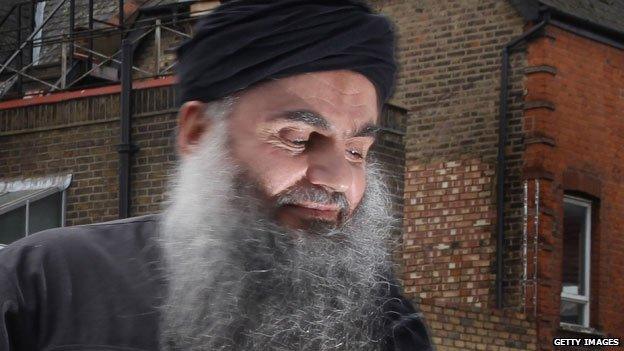
Abu Qatada was then returned to prison on 9 March 2013 after an alleged breach of his bail conditions - but this deportation was still blocked. Weeks later, Home Secretary Theresa May announced a new UK-Jordan treaty to improve co-operation in criminal investigations. That treaty included a guarantee of a fair trial free of torture-tainted evidence for anyone sent back to Jordan. Abu Qatada's lawyers announced he would now return to Jordan.